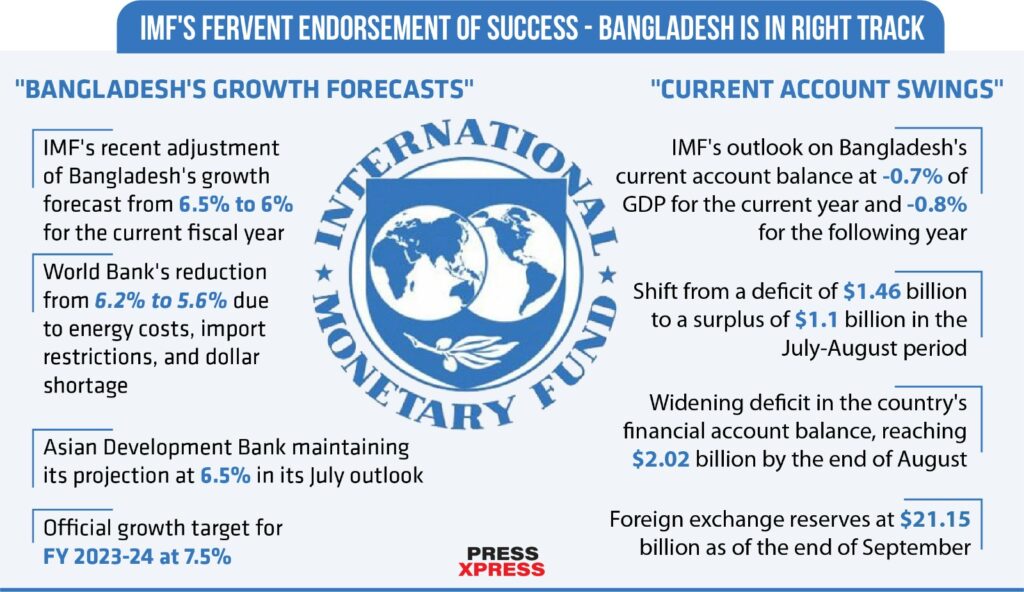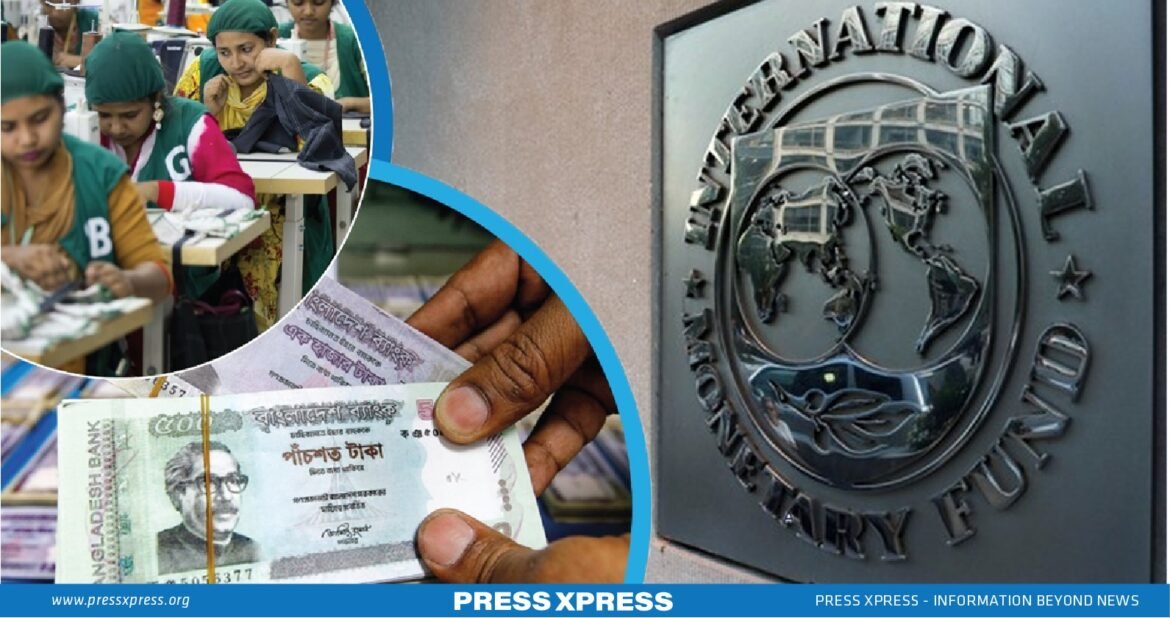Krishna Srinivasan, the Director for the Asia and Pacific at the International Monetary Fund (IMF), declared with fervor that the Bangladeshi economy has resolutely embarked on the path of success. He delivered this speech highlighting the various measures undertaken by the government to combat macroeconomic challenges.
You can also read: Analysis of IMF conditions and Bangladesh’s stand on economic stability
In a press conference titled “Economic Outlook for Asia Pacific” during the Annual Meetings of the World Bank Group and the IMF in Marrakesh, Morocco, Srinivasan expressed his confidence on Bangladesh’s economy. The director stated, “I firmly believe that our economy is steadfastly progressing towards achieving its program objectives, adeptly controlling inflation, and effectively tackling macroeconomic challenges, all amidst a challenging global landscape.”
IMF Director’s optimistic outlook for Bangladesh
When queried further, Krishna Srinivasan elaborated on the remarkable steps taken by the Bangladeshi authorities to confront macroeconomic hurdles. With unwavering determination, he emphasized, “They have decisively tightened monetary policies to curb inflation and have allowed for a more flexible exchange rate regime.”
Srinivasan’s speech was nothing short of a crescendo as he emphasized the critical importance of bolstering revenue collection to support both developmental and infrastructural goals. He passionately conveyed, “In the backdrop of the global crisis, not only Bangladesh but every nation in the region faces its set of challenges. It is imperative that we intensify our efforts to advance growth-enhancing reforms.”
Furthermore, he underlined the significance of raising government revenue ratios from modest levels, enabling additional investments in crucial areas such as education and infrastructure, while simultaneously maintaining a prudent check on public debt.
Srinivasan emphasized the paramount importance of strengthening multilateral and regional cooperation and mitigating the disruptive effects of geo-economic fragmentation for the economic outlook of Asia in the years ahead. He concluded with a resounding call to action, declaring, “To this end, we must push for reforms that diminish nontariff trade barriers, enhance connectivity, and cultivate more business-friendly environments. All of these are vital to attract increased foreign and domestic investments across the entire region.”
IMF, World Bank, and ADB adjust Bangladesh’s growth expectations
In a recent development, the International Monetary Fund (IMF) has revised downward its economic growth forecast for Bangladesh to 6% for the current fiscal year, a significant reduction from its April projection of 6.5%.
This downward revision closely follows the World Bank’s own adjustment, which lowered Bangladesh’s GDP growth projection to 5.6% from the previously anticipated 6.2% in April. The reasons cited for this adjustment included soaring energy costs, import restrictions, a shortage of dollars in banks, and a hesitance to tighten monetary policies. However, in contrast, the Asian Development Bank, in its July outlook, opted to maintain its initial projection of 6.5%.

It’s worth noting that the official growth target for the fiscal year 2023-24 stands at an ambitious 7.5%. Economist Dr. Ahsan H Mansur, who serves as the executive director of the Policy Research Institute (PRI), views the IMF’s revision as realistic, given the prevailing economic trends. He points to financial account deficits, high inflation, declining remittances, a shortage of dollars, and a consistent decrease in foreign reserves as the key factors contributing to this adjustment.
The IMF’s decision to lower its growth forecast for Bangladesh aligns with its broader outlook, which anticipates a global economic slowdown in the present year and into 2024. Advanced economies are expected to experience a more pronounced decline as they initiate policy tightening measures while emerging markets and developing economies are projected to see a more moderate decline.
IMF backs decision to adjust Bangladesh’s growth projection
The International Monetary Fund (IMF) has staunchly defended its decision to lower its GDP growth forecast for Bangladesh in the fiscal year 2023-24, deeming this adjustment to be “quite reasonable” given the numerous ongoing challenges, notably elevated inflation.
Krishna Srinivasan, Director of the Asia and Pacific Department at the IMF, explained that Bangladesh is grappling with multiple challenges, including surging commodity prices, a deceleration in external demand, and the persistent tightening of global monetary policies. He emphasized that all of these factors continue to exert downward pressure on Bangladesh’s growth prospects, which is why the IMF revised the growth forecast to 6 percent for FY ’24, maintaining the same level as in FY ’23.
When questioned about the Bangladesh government’s ambitious target of 7.5 percent growth, Srinivasan remarked that it’s not uncommon for countries to set higher growth targets than external organizations like the IMF project.
Srinivasan added, “So, at this point in time, the effort is going towards macro stability. A 5 percent growth in that context is pretty reasonable.” Looking ahead, Bangladesh holds substantial growth potential, according to Krishna Srinivasan. He pointed out the country’s favourable demographics, which, once coupled with effective crisis management and a comprehensive reform agenda, can position Bangladesh to attain middle-income status.
Srinivasan urged the consideration of near-term growth figures in the context of medium-term potential. He stressed the importance of raising revenues to support both developmental goals and the infrastructure requirements essential for enhancing the economy’s productive capacity.


